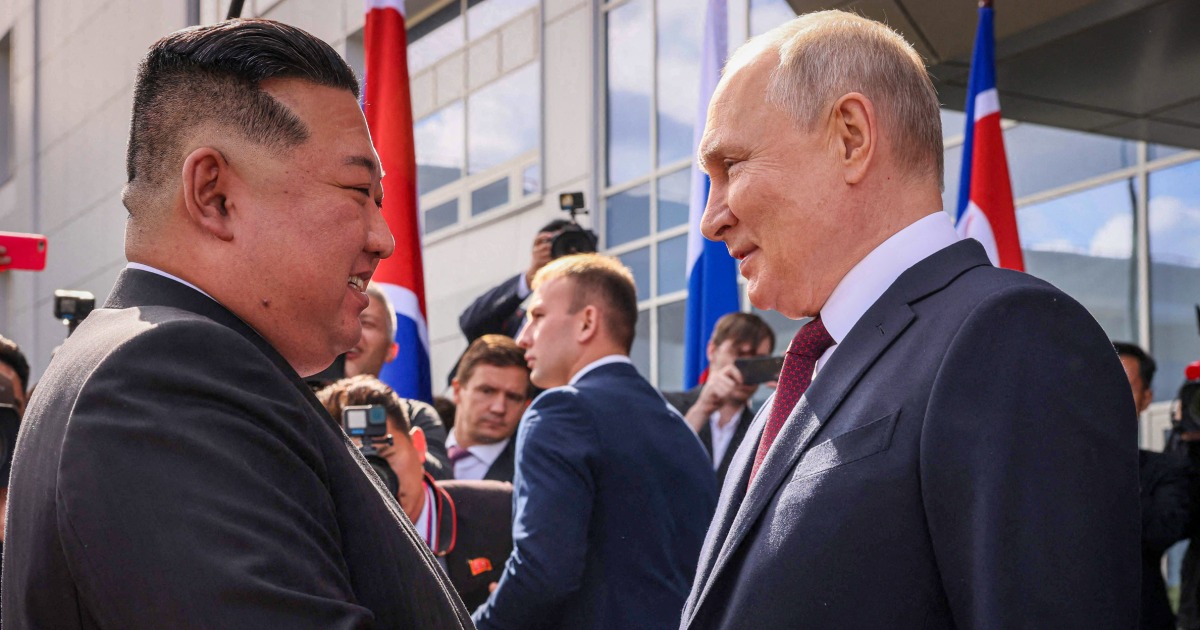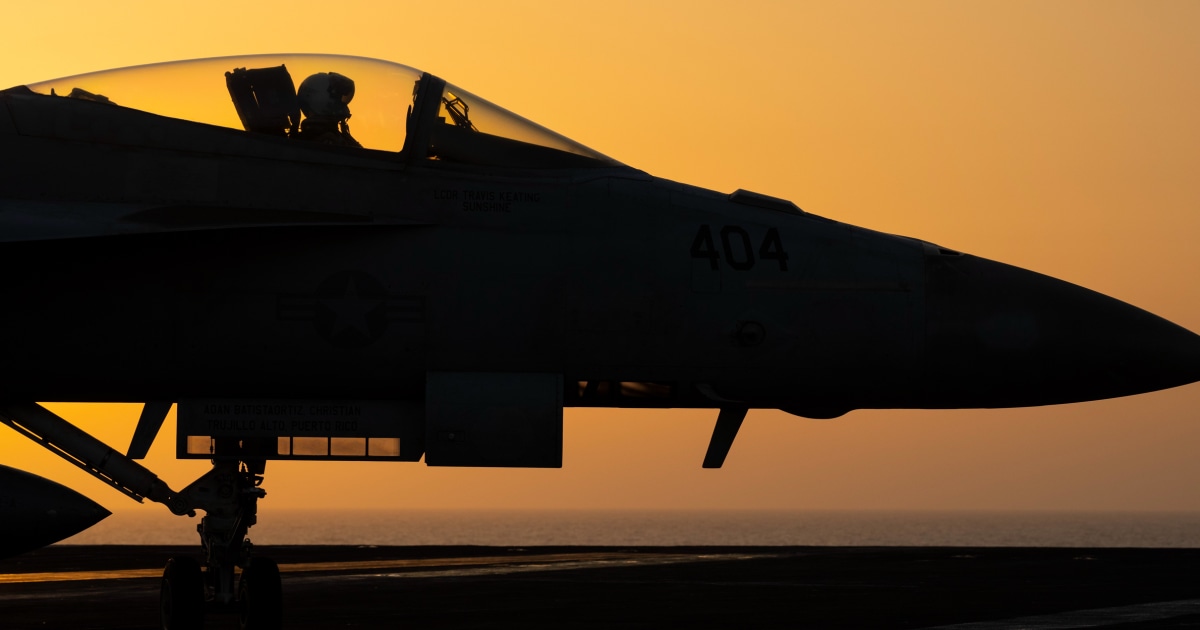World
What does North Korea get out of sending its soldiers to fight Russia’s war?

It is clear what Russia stands to gain from an influx of some 10,000 North Korean troops to aid its war in Ukraine. Less apparent is what might be in it for Kim Jong Un.
Pyongyang’s seemingly imminent entry into Moscow’s war is a watershed moment that further complicates the international web of interests entangled in a conflict that is fast approaching its thousandth day. To many observers, it risks escalating the conflict by connecting rising tensions in Europe and the Asia-Pacific.
Kim has spent months issuing mounting threats against his southern neighbors and working to enhance his nuclear arsenal, while Russian President Vladimir Putin has engaged in his own saber-rattling with the West as his military lost scores of men to make battlefield gains. Now the two are intensifying their partnership, alarming the United States and its allies.
“North Korea might be getting combat experience with drones and some real combat experience in a 21st century war,” Alexander Gabuev, director of the Carnegie Russia Eurasia Center in Berlin, told NBC News. “But that is secondary to the strategic capabilities that they might obtain from Russia — and I think that the concern on the South Korean side is exactly driven by this.”
The Pentagon on Monday confirmed that around 10,000 North Korean troops have been sent to Russia for training and are presumed to be joining the fight against Ukraine within “the next several weeks.” Some of those units have already started making their way West toward Ukraine, and may join the Kremlin’s forces struggling to expel Ukrainian forces from Russia’s Kursk region, according to the Pentagon.
It’s not hard to see why Moscow seems happy to have drawn international ire with this extraordinary invite.
Ukrainian forces penetrated Russian defenses in August and seized a swath of Russian territory in the Kursk region — a gambit seen by many as a blow to Putin’s prestige. Russia has managed to retake some of that territory, but has failed to expel the Ukrainian invaders and seemed reluctant to divert troops from the war’s eastern front lines to do so.
North Korean troops are expected to help with that.
South Korea’s foreign and defense ministers will be traveling to Washington for meetings with their counterparts Wednesday and Thursday, following a briefing of NATO leadership Monday.
NATO Secretary General Mark Rutte said in a statement following the briefing that the alliance could now confirm that North Korean troops are in Russia and have been deployed to the Kursk region.
Asked by NBC’s Keir Simmons last week in Kazan to comment directly on these developments, Putin stuck to his guns:
“It is not Russia’s actions that led to an escalation in Ukraine,” Putin said, blaming Washington and its NATO allies for arming and supporting Ukraine. As for the presence of North Korean troops in Russia, he didn’t deny the reports and instead referenced a mutual defense pact signed in Pyongyang in June.
But what, exactly, is Pyongyang getting out of this?
Western and South Korean officials have suggested previously that North Korea was being paid through various means, including resources, food and in some cases hard cash. But Russian and North Korean relations have visibly deepened as the war in Ukraine has raged on.
A visit by Kim to Russia’s Vostochny spaceport last summer, which set the stage for the supply of North Korean munitions, was met with speculation that Putin was trading away valuable Russian knowledge in the sphere of space technologies, which have vast overlaps with those utilized in a successful nuclear program.
“I think that question whether or not that is actually happening is the key,” Gabuev said.
South Korea’s spy agency said Tuesday that North Korea was preparing to repeat a failed effort to launch a spy satellite, with the help of Russia, according to the Yonhap News Agency. Their last attempt came May 27, when the rocket carrying the satellite into orbit exploded on launch.
But the dispatch of troops is a more significant commitment from North Korea than material. And it is driven largely out of desperation on both sides of the relationship, analysts told NBC News.
Moscow is in dire need of friends, especially those that will chip in to the war effort. North Korea, for its part, needs a partner that will shield it from the United Nations Security Council as it pursues its nuclear ambitions.
“North Korea is trying to get as many benefits as it can from this relationship,” said Edward Howell, an expert on North Korea at the Chatham House think tank. “And it now has full, unwavering support of Russia at the U.N. Security Council, which is extremely beneficial for North Korea, because it knows that it can test missiles, it can provoke South Korea.”
“It can even conduct a nuclear test and get away with it, because sanctions are just not going to be issued because of Russia’s veto power,” he said.
There are other benefits for Kim’s regime.
Though North Korea has the fourth-largest standing army in the world — some 1.2 million troops — it has been a long time since that army has engaged in warfare. The war’s vast front lines could become a sort of laboratory for modern warfare, giving Kim’s troops — and their generals — a chance to study.
This may explain why South Korea has taken the lead in raising the alarm. Seoul has even gone so far as to say that it may consider sending lethal military aid to help Ukraine. But Gabuev said that South Korea’s main concern is mostly on strategic issues — such as the nuclear program.
“If thousands of North Korean troops learn how to survive on a battlefield full of drones,” Gabuev said, “that is a lesser problem than North Korea having quieter nuclear-capable submarines. And I think that is what explains South Korea’s fierce response.”










